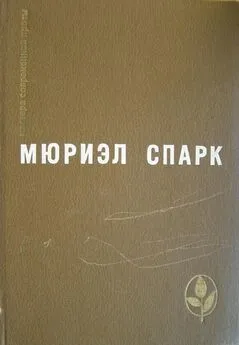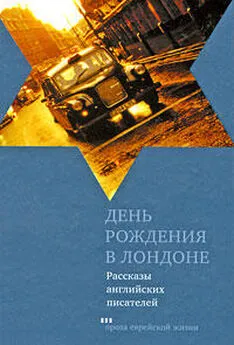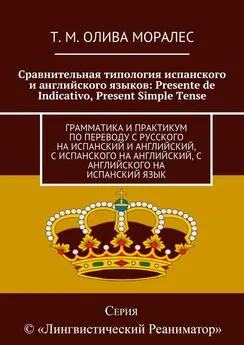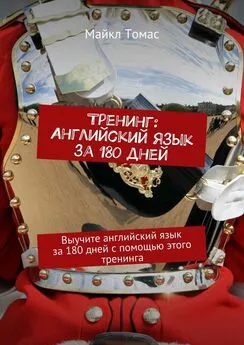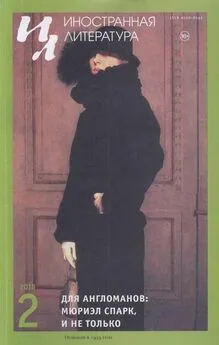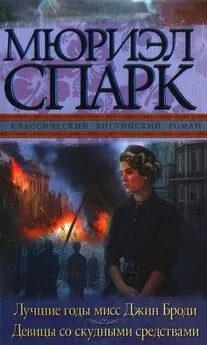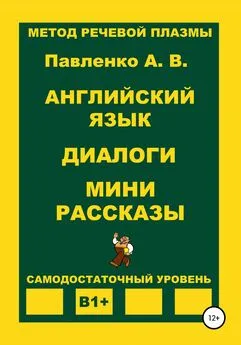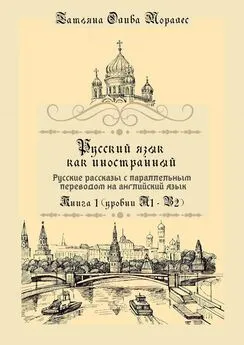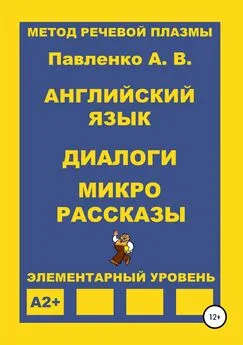Мюриэль Спарк - Английский язык с Мюриэль Спарк (рассказы)
- Название:Английский язык с Мюриэль Спарк (рассказы)
- Автор:
- Жанр:
- Издательство:неизвестно
- Год:неизвестен
- ISBN:нет данных
- Рейтинг:
- Избранное:Добавить в избранное
-
Отзывы:
-
Ваша оценка:
Мюриэль Спарк - Английский язык с Мюриэль Спарк (рассказы) краткое содержание
Английский язык с Мюриэль Спарк (рассказы) - читать онлайн бесплатно полную версию (весь текст целиком)
Интервал:
Закладка:
satisfaction ["sxtIs'fxkS(q)n] snobbish ['snObIS] Saturday ['sxtqdI]
Oxford St.John departed at the end of the month. He promised to write, but they were not surprised when weeks passed and they had no word. "I don't suppose we shall ever hear from him again," said Lou. Raymond thought he detected satisfaction in her voice, and would have thought she was getting snobbish as women do as they get older, losing sight of their ideals, had she not gone on to speak of Henry Pierce. Henry had written to say he was nearly cured, but had been advised to return to the West Indies.
"We must go and see him", said Lou. "We promised. What about the Sunday after next?"
"O. K." said Raymond.
It was the Saturday before that Sunday when Lou had her first sick turn. She struggled out of bed to attend Benediction, but had to leave suddenly during the service and was sick behind the church in the presbytery yard. Raymond took her home, though she protested against cutting out her rosary to the Black Madonna.
''After only six weeks (после всего шести недель)!'' she said, and she could hardly tell (и она вряд ли могла сказать) whether her sickness was due to excitement or nature (чем была вызвана ее тошнота — волнением или беременностью: «была ли ее тошнота из-за возбуждения или природы»). "Only six weeks ago (всего шесть недель назад)," she said — and her voice had a touch of its old Liverpool (и в ее голосе звучала нотка /маленькой девочки из/ Ливерпуля: «голос имел оттенок его /голоса/ старого Ливерпуля») — ''did we go to that Black Madonna (отправились мы к /той/ Черной Мадонне) and the prayer's answered, see (и /наши/ молитвы услышаны, видишь)." Raymond looked at her in awe (Раймонд посмотрел на нее с трепетом; awe — благоговейныйстрах, трепет ) as he held the bowl for her sickness (держа тазик, пока ее тошнило; bowl — миска, таз, чашка ).
"Are you sure (ты уверена)?" he said.
She was well enough next day (она достаточно хорошо чувствовала себя на следующий день; to be well — бытьздоровым, чувствоватьсебяхорошо ) to go to visit Henry in the sanatorium (чтобы отправиться навестить Генри в санатории). He was fatter (он растолстел: «был толще») and, she thought (и, как ей показалось: «она думала»), a little coarser and tough in his manner (немного грубее и жестче в поведении), as if once having been nearly disembodied (казалось, что: «как если бы» его уже пытались освободить от телесной оболочки; to disembody — делатьбесплотным ) he was not going to let it happen again (и он не собирался допустить этого во второй раз: «снова»; to let — разрешать, дозволять; to happen — случаться ). He was leaving the country very soon (он покидал страну очень скоро). He promised to come and see them before he left (он обещал приехать навестить их до своего отъезда: «до того, как он уедет»). Lou barely skimmed through his next letter (Лу просто бегло просмотрела его следующее письмо; toskimthrough— бегло просматривать ) before handing it over to Raymond (а затем: «до того как» передала его Раймонду; tohand— вручать ).
Their visitors, now, were ordinary white ones (их гостями теперь были обыкновенные белые /люди/). '"Not so colourful (не такие красочные: «цветные»)," Raymond said, "as Henry and Oxford were (какими были Генри и Оксфорд)." Then he looked embarrassed (после чего он выглядел смущенным; toembarrass— беспокоить, смущать ) lest he should seem to be making a joke (как бы не показалось, что он насмехается; tomakeajoke— подшутить ) about the word coloured (над словом цветные; coloured— сущ. представитель черной расы, негр; прил. раскрашенный, цветной ).
excitement [Ik'saItmqnt] awe [O: ] enough [I'nAf] disembody ["dIsIm'bOdI]
embarrass [Im'bxrqs]
''After only six weeks!'' she said, and she could hardly tell whether her sickness was due to excitement or nature. "Only six weeks ago," she said — and her voice had a touch of its old Liverpool — ''did we go to that Black Madonna and the prayer's answered, see." Raymond looked at her in awe as he held the bowl for her sickness. "Are you sure?" he said.
She was well enough next day to go to visit Henry in the sanatorium. He was fatter and, she thought, a little coarser: and tough in his manner, as if once having been nearly disembodied he was not going to let it happen again. He was leaving the country very soon. He promised to come and see them before he left. Lou barely skimmed through his next letter before handing it over to Raymond.
Their visitors, now, were ordinary white ones. "Not socolourful," Raymond said, '"as Henry and Oxford were." Then he looked embarrassed lest he should seem to be making a joke about the wordcoloured.
"Do you miss the niggers (вы скучаете по ниггерам)?" said Tina Farrell (спросила: «сказала» Тина Фаррелл), and Lou forgot to correct her (и Лу забыла поправить ее; to correct — исправлять, поправлять ).
Lou gave up most of her church work (Лу оставила большую часть своей церковной работы ; to give up — бросать, отказываться ) in order to sew and knit for the baby (чтобы шить и вязать для малыша). Raymond gave up the Reader's Digest (Раймонд расстался с Ридерз Дайджест). He applied for promotion and got it (он написал заявление на повышение в должности и получил его; promotion— поощрение, продвижение по службе ); he became a departmental manager (он стал начальником отдела). The flat was now a waiting-room for next summer (квартира превратилась: «была теперь» в зал ожидания следующего лета), after the baby was born (когда должен был родиться ребенок: «после рождения ребенка»), when they would put down the money for a house (когда они отложат деньги на дом). They hoped for one of the new houses (они надеялись на один из новых домов) on a building site on the outskirts of the town (которые строились: «местах застройки» на окраинах города; outskirt— окраина, предместье ).
"We shall need a garden (нам понадобится: «будет нужен» сад)," Lou explained to her friends (объясняла Лу своим друзьям). "I’ll join the Mothers' Union (я вступлю в Союз Матерей; tojoin— соединять, связывать, вступать в члены )," she thought (думала она). Meantime the spare bedroom (тем временем, свободная спальня; spare— запасной, лишний ) was turned into a nursery (превратилась в детскую комнату). Raymond made a cot (Раймонд сделал детскую кроватку), regardless that some of the neighbours (несмотря на то, что некоторые соседи; regardless— не принимая во внимание, не считаясь ) complained of the hammering (жаловались на стук молотка; hammer— молоток, молот ). Lou prepared a cradle (Лу подготовила колыбель), trimmed it with frills (украсив ее оборками; totrim— приводить в порядок, подрезать, украшать ). She wrote to her relatives (она написала своим родственникам); she wrote to Elizabeth (она написала Элизабет), sent her five pounds (отправила ей пять фунтов), and gave notice (и предупредила) that there would be no further weekly payments (что больше не будет /дальнейших/ еженедельных платежей), seeing that they would now need every penny (так как теперь им понадобится каждый пенни).
sew [sqV] departmental ["di: pQ:t'mentl] outskirt ['aVtskq: t] spare [spεq]
hammering ['hxmqrIN]
"Do you miss the niggers?" said Tina Farrell, and Lou forgot to correct her.
Lou gave up most of her church work in order to sew and knit for the baby. Raymond gave up the Reader's Digest. He applied for promotion and got it; he became a departmental manager. The flat was now a waiting-room for next summer, after the baby was born, when they would put down the money for a house. They hoped for one of the new houses on a building site on the outskirts of the town.
"We shall need a garden," Lou explained to her friends. "I'll join the Mothers' Union," she thought. Meantime the spare bedroom was turned into a nursery. Raymond made a cot, regardless that some of theneighbourscomplained of the hammering. Lou prepared a cradle, trimmed it with frills. She wrote to her relatives; she wrote to Elizabeth, sent her five pounds, and gave notice that there would be no further weekly payments, seeing that they would now need every penny.
"She doesn’t require it, anyway (они все равно не нужны ей, в любом случае; torequire— требовать, нуждаться )," said Raymond. 'The Welfare State (государство всеобщего благосостояния; welfare— благосостояние, благотворительность, материальная помощь ) looks after people like Elizabeth (заботится о людях, подобных Элизабет)." And he told Lou about the contraceptives (и он рассказал Лу о контрацептивах) he thought he had seen on the table (которые, как он думал, он видел на столе) by the double bed (у двухместной кровати). Lou became very excited about this (Лу пришла от этого в возбуждение). "How did you know they were contraceptives (откуда ты знаешь, что это были противозачаточные таблетки)? What did they look like (как они выглядели)? Why didn’t you tell me before (почему ты не сказал мне раньше)? What a cheek (какая наглость), calling herself a Catholic (называет себя католичкой), do you think she has a man, then (ты думаешь, что у нее есть мужчина)?"
Читать дальшеИнтервал:
Закладка:

